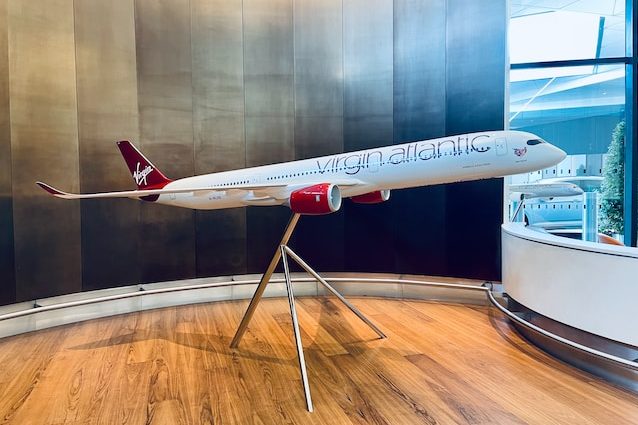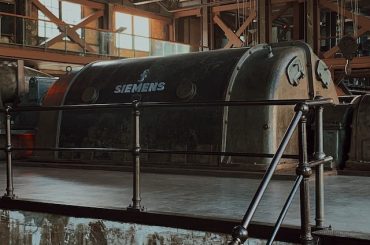Before we dive deep into the PESTEL analysis, let’s get the business overview of Virgin Atlantic. Virgin Atlantic is a well-known British airline that has garnered recognition for its brand, service, and innovative approach to air travel. Here’s a concise business overview of Virgin Atlantic:
- Background:
- Founded: In 1984 by Richard Branson’s Virgin Group.
- Headquarters: Crawley, West Sussex, England.
- Business Model & Services:
- Primary Business: Virgin Atlantic primarily operates long-haul routes between the UK and various global destinations.
- Partner Airlines: The airline has a number of code-share agreements and partnerships with other carriers, enhancing its global reach.
- Loyalty Program: “Flying Club” is Virgin Atlantic’s frequent flyer program, allowing members to earn and redeem miles.
- Fleet & Destinations:
- The airline operates a modern fleet consisting of Airbus and Boeing aircraft, servicing destinations across North America, the Caribbean, Africa, the Middle East, Asia, and Europe.
- Virgin Atlantic continuously evaluates its routes based on demand, profitability, and strategic alignment, leading to periodic destination changes.
- Financial Performance 2022: Virgin Atlantic reported total revenue of £2.9 billion, recovering to 98% of 2019’s revenues; an underlying EBITDA of £310 million; and a loss of £206 million before tax and exceptional items.
Here is the PESTEL analysis of Virgin Atlantic
A PESTEL analysis is a strategic management framework used to examine the external macro-environmental factors that can impact an organization or industry. The acronym PESTEL stands for:
- Political factors: Relate to government policies, regulations, political stability, and other political forces that may impact the business environment.
- Economic factors: Deal with economic conditions and trends affecting an organization’s operations, profitability, and growth.
- Sociocultural factors: Relate to social and cultural aspects that may influence consumer preferences, lifestyles, demographics, and market trends.
- Technological factors: Deal with developing and applying new technologies, innovations, and trends that can impact an industry or organization.
- Environmental factors: Relate to ecological and environmental concerns that may affect an organization’s operations and decision-making.
- Legal factors: Refer to the laws and regulations that govern businesses and industries.
In this article, we will do a PESTEL Analysis of Virgin Atlantic.
PESTEL Analysis Framework: Explained with Examples
Political
- Regulatory Environment: The aviation industry is stringently regulated. This includes safety standards, flight operations, crew training, and aircraft maintenance. Complying with these regulations is paramount for Virgin Atlantic to maintain its operating licenses and ensure passenger safety.
- Bilateral Air Service Agreements: The ability of Virgin Atlantic to operate international routes is often determined by bilateral air service agreements between countries. Changes or renegotiations in these agreements can impact the airline’s route network and expansion plans.
- Political Stability: Unstable political situations in Virgin Atlantic’s destinations can affect travel demand. Situations like political unrest, terrorism, or conflicts can deter travelers and impact flight operations.
- Brexit: The UK’s decision to leave the European Union (Brexit) brought about uncertainties in the aviation sector, especially concerning air rights, regulations, and the movement of people and goods.
- Airport Slots and Infrastructure: Government decisions on airport expansion, slot allocations, and infrastructure development can impact Virgin Atlantic’s operational capabilities. Gaining or losing slots at key hubs can significantly influence the airline’s competitive position.
Economic
- Global Economic Conditions: The overall health of the global economy directly affects travel demand. During economic booms, businesses and leisure travelers are more likely to fly, whereas economic downturns usually result in decreased demand.
- Fuel Prices: Fuel is one of the largest operational costs for airlines. Volatility in oil prices can substantially impact Virgin Atlantic’s profitability.
- Exchange Rates: Virgin Atlantic is an international airline with multiple currencies. Fluctuations in exchange rates can affect the airline’s revenues, costs, and profitability.
- Consumer Spending and Confidence: Consumer confidence and disposable income levels directly influence leisure travel. If consumers are optimistic and have disposable income, they’re more likely to take vacations involving air travel.
- Business Travel: The state of the corporate sector affects business travel. When businesses are doing well, they tend to spend more on travel for meetings, conferences, and other corporate functions.
- Competition and Pricing: The economic landscape affects competition. In challenging economic times, airlines may engage in price wars, eroding profitability. The emergence of low-cost carriers also plays a role in pricing strategies.
- Tourism Trends: Economic conditions in popular tourist destinations served by Virgin Atlantic can influence the volume of travelers. A booming tourist spot can boost demand on specific routes.
- Infrastructure Investment: Economic decisions by governments or private sectors on investing in airport infrastructure can influence Virgin Atlantic’s operational capabilities and growth opportunities.
Sociocultural
- Travel Preferences: Different cultures have varying preferences for vacation times, destinations, and travel purposes (e.g., pilgrimage, family visits, adventure travel). Virgin Atlantic must be aware of these preferences when designing routes and services.
- Customer Expectations: Expectations regarding in-flight service, amenities, punctuality, and baggage handling can vary based on cultural backgrounds. Virgin Atlantic has been known for its unique service, but it must ensure it aligns with the expectations of the various demographics it serves.
- Cultural Sensitivities: When operating globally, it’s crucial to be aware of and respectful of local customs, traditions, and sensitivities, whether it’s related to in-flight meals, entertainment options, or advertising campaigns.
- Language and Communication: Offering multi-lingual services and support, both in-flight and on the ground, is essential for a diverse clientele.
- Changing Family Dynamics: As societal views on family structures evolve, there’s a broader definition of family travel, which now includes, for instance, single-parent families, multi-generational families, and same-sex couples with children.
- Demographics: Age demographics play a role in travel patterns. For example, younger generations might be more inclined toward experiential travel, while older generations might prioritize comfort and convenience.
- Shifts in Leisure and Work: The rise of remote work and digital nomadism can influence travel patterns, with some individuals choosing longer stays or mixing leisure and business travel.
Technological
- In-Flight Entertainment and Connectivity: Modern passengers expect various in-flight entertainment options and connectivity services like Wi-Fi. Virgin Atlantic needs to continually upgrade its IFE systems and provide reliable internet connectivity to meet these expectations.
- Online Booking and Check-in: Technological advancements have streamlined the booking and check-in processes. Virgin Atlantic’s online platform and mobile application must remain user-friendly, secure, and up-to-date with features like electronic boarding passes and real-time flight updates.
- Aircraft Technology: Newer aircraft models are more fuel-efficient, environmentally friendly, and offer better in-flight experiences. Virgin Atlantic’s decisions about fleet renewal and adopting new aircraft technologies can impact operational costs and environmental footprint.
- Operational Efficiency: Technologies related to route optimization, fuel consumption, and predictive maintenance can help Virgin Atlantic enhance its operational efficiency, reduce costs, and improve punctuality.
- Customer Relationship Management (CRM): Advanced CRM systems allow airlines to understand customer preferences, manage loyalty programs, and personalize offers. Effective use of CRM can aid Virgin Atlantic in improving customer retention and satisfaction.
- Digital Marketing and Social Media: In the digital age, Virgin Atlantic can harness the power of social media, search engine marketing, and other online platforms to target potential customers, manage its brand image, and receive feedback.
- Data Analytics: By leveraging big data and analytics, Virgin Atlantic can gain insights into customer behaviors, optimize pricing strategies, and accurately forecast demand.
- Augmented and Virtual Reality (AR & VR): These technologies can be used for training, enhancing in-flight entertainment, or providing potential customers with virtual tours of aircraft interiors and services.
- Artificial Intelligence (AI) and Automation: AI can streamline various processes, from customer support (with chatbots) to operational tasks. Additionally, automation in check-in kiosks and baggage handling can improve efficiency.
- Blockchain: Though still emerging in its applications for airlines, blockchain technology can be explored for secure ticketing processes, loyalty programs, and supply chain transparency.
Environmental
- Carbon Emissions: The airline industry significantly contributes to global CO2 emissions. Virgin Atlantic faces increasing pressure to reduce its carbon footprint like all airlines. This can lead to initiatives like investing in more fuel-efficient aircraft or exploring sustainable aviation fuels.
- Waste Management: Airlines produce a considerable amount of waste from in-flight services, including food packaging, disposable items, and amenity kits. Effective waste management and recycling are becoming more crucial for carriers like Virgin Atlantic.
- Sustainable Aviation Fuels (SAF): There’s growing interest in SAF to reduce the carbon emissions from flights. Investing in or adopting SAF can be a way for Virgin Atlantic to demonstrate its commitment to sustainability.
- Water Conservation: Activities like aircraft cleaning consume vast amounts of water. Virgin Atlantic can look into water-saving technologies and practices to decrease its consumption.
- Regulations and Treaties: Various international agreements and regulations aim to mitigate the environmental impact of aviation. The Carbon Offsetting and Reduction Scheme for International Aviation (CORSIA) is an example that aims to stabilize CO2 emissions at 2020 levels.
- Reputation and Brand Image: Modern consumers are more environmentally conscious. Virgin Atlantic’s commitment, or lack thereof, to environmental sustainability can influence its brand image and customer loyalty.
Legal
- Aviation Regulations: International and national aviation authorities impose various regulations regarding safety, operations, and training standards. Virgin Atlantic needs to ensure full compliance with these to maintain its flying rights and avoid penalties.
- Consumer Protection Laws: These laws deal with passenger rights, compensation for delays or cancellations, lost baggage, and more. For instance, the European Union has the EC 261/2004 regulation stipulating passenger rights in flight disruptions.
- Employment Laws: Covering aspects like worker’s rights, working conditions, wages, and discrimination, these laws are vital to managing Virgin Atlantic’s large workforce correctly.
- Antitrust and Competition Laws: These laws aim to promote fair competition and prevent monopolies or anti-competitive behaviors. When considering partnerships, alliances, or mergers, Virgin Atlantic needs to be wary of these regulations.
- Taxation Laws: Different countries and regions have varying taxation laws affecting airline operations, from corporate taxes to airline ticket taxes to aviation fuel taxes.
- Immigration and Visa Regulations: Changes in immigration laws or visa requirements in countries Virgin Atlantic operates can influence passenger flow and demand for certain routes.
- Aircraft Leasing and Financing: Legal considerations related to the leasing or financing of aircraft can influence Virgin Atlantic’s fleet management decisions.
- Intellectual Property: Ensuring protection for branding, trademarks, and proprietary in-flight technologies is essential to maintain Virgin Atlantic’s unique brand identity and competitive advantage.
- Data Protection and Privacy: With the digital transformation of services, airlines collect vast customer data. Regulations like the General Data Protection Regulation (GDPR) in Europe dictate how this data should be managed and protected.











